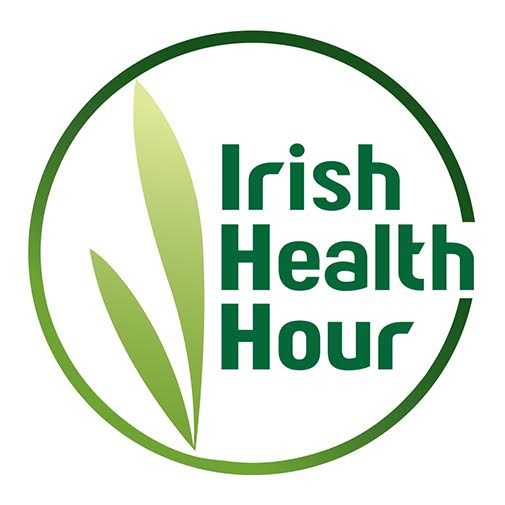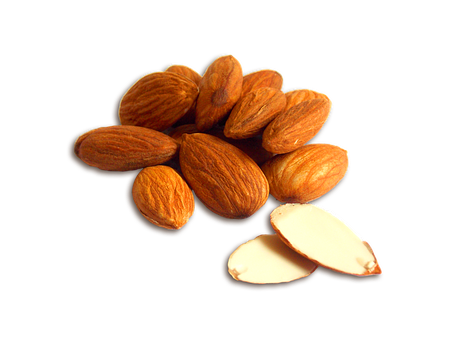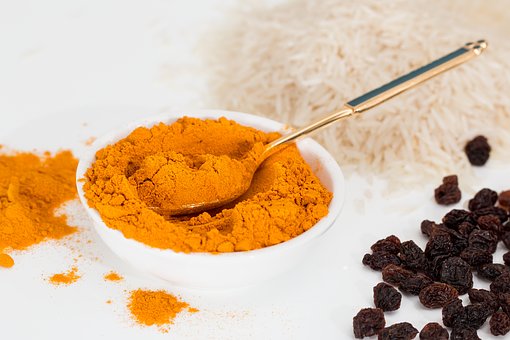Is Dairy Bad for our Health? The Great Milk Debate
Are you a dairy free, skinny latte or a downright full fat kinda person?
The whole diary versus no dairy topic is of huge interest to many many people and, like most food related issues, there is a lot of conflicting information out there.
I have my own stories around “milk” and how it has impacted my own and my children’s health. So, I decided to chat with some nutritional experts as well as people like myself, who have “personal milk stories” to check out a few facts.
There are a lot of stories that are considered “old wives’ tales” and that are thrown out with the bathwater. But, some of these “old wives' tales” are worthy of listening to, as evidenced by the following stories. Like for example the question which asks;
“Does milk have an effect on our respiratory system?”
Some studies show no link between dairy and respiratory issues; however, many people find when they give up milk their respiratory issues abate.
There is a theory that has been put forward that mucus glands in the respiratory tract may respond to casomorphin from dairy milk, which could potentially stimulate the production and secretion of mucus in the respiratory glands. (1)
For some dairy milk is known and documented to increase mucus production or produce asthma-like symptoms. (2)
My own personal story around looking at milk in a different light started when my eldest son was 4 years old and was diagnosed with asthma. Before he commenced on the inhaler route I visited a local homeopath Lillian van Eyke and let’s just say he doesn’t suffer from asthma nor has he since going on a homeopathic blend and going off dairy.
Ciara Murphy admits to going off milk for ethical reasons and found that her chronic sinusitis just disappeared.
It was the same story for Sandra Martin NeeKearns. She found she had more energy, felt less groggy and felt overall better when she gave up diary. Again, like Ciara, she had not given up milk for medical reasons. She said her husband also gave it up and his eczema and sinusitis all cleared up!
So, this remains a controversial issue and not entirely an old wives’ tale for those folks who do react to dairy!
The whole lactose intolerance topic is another sensitive area for some. So, what’s the skinny on this one?
Well the fact is that some people lack the digestive enzyme lactase which is needed to break down lactose, or milk sugar. Generally, we lose the ability to produce lactase after a few years of birth. This may help you understand why lactose intolerance can be something that happens to you at a later stage in life. On the other hand, there will always be many babies who thrive better on lactose intolerant baby food.
Best milk for baby will always be mother’s milk but of course this process does not always work out like we would like it to and, sometimes this can also be due to ill health or personal preferences. I started my youngest son on formula after about 4 weeks and he became very unsettled and quite colicky. I changed formulas many times and he settled dramatically after going on a lactose intolerant formula.
It’s like everything else, we all don’t have the same story around this topic.
I spoke with Niamh Burke Nutritionist and asked her for her thoughts on dairy and this is what she had to say:
“I think the problem with dairy these days is it's just so over processed. Milk has most of the fat removed so what your left with is mostly water and lactose. A medium sized glass (250ml) of milk contains on average 3 teaspoons of sugar. Yes, it's a natural sugar but studies show a significant insulin response after dairy intake. Insulin is the hormone released after sugar or carbohydrate consumption to allow energy into cells. When insulin is released in excess (due to an abundance of energy) it promotes fat storage.
Natural yoghurt and butter are much lower in lactose. With pasteurisation the beneficial microbes in the milk that help us to digest all that lactose have been removed; that's one of the reasons processed dairy has become such an issue for so many people. In 2015 the sale of raw milk was legalised in Ireland and you can now buy it in your local stockists. You can find a list in the Raw Milk in Ireland website. In Galway, you can pick it up in Sheridan's cheese mongers or McCambridge’s on Shop Street.
The only milk I drink is myself is kefir. The beneficial microbes in kefir predigest the milk and remove most of the lactose while giving you a daily dose of probiotics. Homemade kefir contains about 4 billion live bacteria per teaspoon which would give many supplement companies a run for their money”!
Another lady I spoke to was Chiara Gianelli Founder of A Matter of Nourishment about her own experience with diary. She recounted how she started having issues with dairy products, especially milk when she was a child going to primary school. She recalls her diet lacking in fresh fruit and vegetables and high in refined carbohydrates and meat. It was also a stressful time for her and her says “we know that there's a deep connection between gut health and stress or mental health”.
Chiara was constantly having skin issues, but her GP never thought about a connection with food. She was having milk 2/3 times per day, and cheese daily.
She states “My main issue was with the milk at breakfast time, and after being sick many times, I had started refusing to eat in the morning. I wish that we had had more knowledge about dairy alternatives, nutrients, food allergies, and issues like IBS or gut health. Unfortunately, the common idea that milk is good for everyone was the only option and nobody thought about a food intolerance (I'm talking about approx. 20 years ago, in Italy). Basically, for many years, I have kept refusing milk and trying to limit the intake of dairy products, or feeling always sick or bloated. I had started re-introducing milk when I have left my parents' house and changed my diet completely - it took me some time and a lot of effort, but then I was able to enjoy a cup of coffee with milk without feeling bad. Now, my intake of dairy is limited, and I try always to find a balance in my diet, choosing mainly organic products and looking for the best quality. I also regularly include in my diet plant-based alternatives, making my own nut drinks”.
You can check out her website where she shows us how to make ghee. Ghee, or “liquid gold”, is one of the cornerstones of Ayurvedic medicine.
So, in conclusion, is it about choice on one hand and, on the other hand sometimes about not being physically able to tolerate cow’s milk?
As an energy therapist, myself I always advocate listening to your own body and its needs. Your own body doesn’t lie when you tune in and become aware of its natural rhythm. If you work long hours and eat badly then your body will most likely start to feel stressed. If your diet is bad you may need to look at the overall picture and make an informed decision from there, one that cuts out certain groups which seem to cause bloating tiredness or whatever. Some of the alternatives to milk are delicious in my option and I love to get some plant based nutrition into my own diet. My personal favourite is oat milk which makes a great base for turmeric milk with its wonderful anti-inflammatory properties.
Like Chaira when I was growing up it seemed that milk was a staple and that you couldn’t do without it because of the calcium it contains and, the story that you needed milk for strong bones and teeth.
Esther Lawson de Ocampo grew up on a farm and remembers fondly drinking raw milk. She says; " Raw milk is delicious. When we are at my parents' house who are dairy farmers, my youngest (who normally isn't a big milk drinker) will drink a large glass of milk and even asks for more!! I grew up on it and we always fought for the cream on the top of the milk for our cereal in the morning. Thankfully no lactose issues here although I recognise others do. Calcium is very important no matter where it comes from, as well as a balanced diet".
However, dairy is not the only food that contains calcium. Green leafy vegetables contain lots of calcium and there is nothing special about milk and calcium absorption.
If you have a fussy eater though this can be difficult, I have found lots of ways to sneak certain foods into my kid’s diets. My 13-year-old (whom I referred to above re; asthma) does not drink milk, however, when I make his favourite pancakes I use full fat milk. A little bit of chocolate on the top works a dream!!! And, for any of you who like to avoid giving your children chocolate, there are great recipes for healthier non-sugar chocolate out there using coconut oil and raw cacao. For me, everything in life is about balance and if a little Nutella on top of a pancake every now and again gets my son drinking milk and eating eggs (another food he says he doesn’t like) then I am all for it!!
When referring to plant based milk alternatives you need to mind the language you use and you also need to be aware of this on food labeling. The Court of Justice of the European Union in Luxembourg recently announced purely plant-based products cannot, in principle, be marketed with designations such as ‘milk’, ‘cream’, ‘butter’, ‘cheese’ or ‘yogurt’, which are reserved by EU law for animal products. (3)
Something else to note when choosing which plant based alternative to have, is to check out which is best for your overall health, wellness and your unique needs. They are each different nutritionally. For example, rice milk, although lower in calories than its dairy counterpart, has a higher concentration of natural sugars. It comes back to knowing your own body’s needs.
Coconut milk is a favourite in Ayurvedic cooking (Indian traditional medicine), a way of life that allows you to eat as per your own doshas or body type. AND it must be noted of course that this changes at varies times of our life. A 20-year-old woman will have different needs hormonally than a 50-year-old woman who may have to be more careful around hormonal balance. Although again some 20-year-old girls may already have hormone imbalance for any number of reasons so, it goes back to knowing your own body.
There are many other reasons people choose to eliminate diary from their diets including weight loss and the fact that many people link dairy consumption with various illnesses.
Based on my research and listening to the advice of those I trust in the nutrition world I think it is safe to allow ourselves to make up our own minds and listen to our own bodies. If you do choose to drink diary the Harvard School of Public Health advises restricting dairy milk consumption to less than the one to two glasses per day limit currently recommended by other experts.
Bottom line some people can tolerate dairy milk better than others and some people are allergic and should avoid it completely. It is your body so put into it what feels right for you.
Dolores Andrew-Gavin, Energy Therapist, Founder of the Global Emotional Health Summit, Author and Mum
1) https://www.ncbi.nlm.nih.gov/pubmed/19932941
(2) https://www.ncbi.nlm.nih.gov/pubmed/16373954
(3) European Court of Justice says purely plant-based products can’t use dairy names
By Jim Cornall+, 14-Jun-2017






